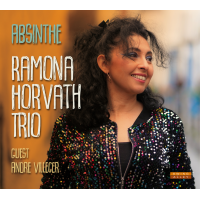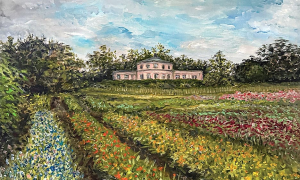The Original Soundtrack is Composed, Conducted, and Produced by Alexandre Desplat. Desplat has received Oscar and BAFTA nominations for The Queen, and the International Film Music Critics Association’s 2007 Composer of the Year and Best Original Score for a Fantasy/Science-Fiction film Awards for The Golden Compass.
The Paramount Pictures Film Is Directed By David Fincher (Zodiac, Fight Club).
The Double Disc Set Includes an entire CD devoted to Desplat’s Score, and a Second to Jazz, Big Band, and ‘50s Classics by Bix Beiderbecke, The Boswell Sisters, Preservation Hall Jazz Band, Louis Armstrong, Sidney Bechet, Perez Prado, The Platters, and Others.
Award-winning composer Alexandre Desplat’s score to The Curious Case of Benjamin Button creates a mesmerizing sonic mindscape that mirrors the unique emotional world of the movie’s lead character, Benjamin Button (Brad Pitt). Based on F. Scott Fitzgerald’s short story, The Curious Case of Benjamin Button, the score and movie explore the life of some one who is born an old man and ages backwards.
Benjamin’s life progresses in retrograde motion, from his birth at the close of World War I to his death at the start of the 21st century. During his backwards lifetime, he falls in love with an exquisite beauty named Daisy (Cate Blanchett). As deep and genuine as their love may be, Benjamin’s reverse biology makes a lasting union impossible.
Desplat’s haunting score creates a mystical, diaphanous haze through which we watch events in Benjamin Button’s life transpire as if through a scrim of heart-tugging sadness.
“All the people Benjamin meets he loses quickly,” says Desplat, “as they age and die while he gets younger. Because a continuous love relationship with anyone cannot work, his life is composed of heartbreaking flashes of connection. The music has to express the movement of going inexorably forward but still backwards, and the melancholia that is the essence of Benjamin’s character.”
The miracle of the movie is that Benjamin embraces life fully and continuously moves forward on his journey. In doing so, he transcends the limitations of his fate. As the empathic beauty of Desplat’s score draws us in deeper and deeper, it transforms the cinematic experience into a heartwarming affirmation of love.
“The movie,” says Desplat, “has everything that a film can offer to a composer: A humanistic script by Eric Roth of a man’s epic journey living his life biologically in reverse through a century, a heartbreaking love story played with intensity by two of the most glamorous and gifted actors of our times, the pulse of jazz in the city where he was born, a twist of witty humor, the metaphysical question of death, and the pure visual magic created by a genius director.”
The composer, who was born in Paris in 1961, has received worldwide recognition for creating an ideal musical language for cinema. Desplat received his first award nomination, the Csar Award of France (the French movie industry’s main equivalent to the Oscar), at the age of 36. Since then, he has been on a roll, receiving 13 other nominations and nine awards for nine different films. In the three-year period ending in 2008, his wins included the BMI Film & TV, European Film, World Soundtrack, and Los Angeles Film Critics Association Awards (The Queen); the Silver Berlin Bear, Csar, and toiles d’Or Awards (De battre mon coeur s’est arrêt); the Golden Globe, World Soundtrack and LAFCA Awards (The Painted Veil); and Taiwan’s Golden Horse Award (Se, jie),
Finding a way to weave together music and dialogue with Benjamin and Daisy’s ongoing narration posed a particular challenge for Desplat. “The music has to be powerful, yet very silent,” he explains. “It must be very delicate and prudent – never showing off – while always conveying the characters’ underlying emotions. And since Benjamin is a very silent man, the music must express great empathy with his situation as it illumines his moments of sadness and questioning.”
To mirror Benjamin’s retrograde existence, Desplat created a main theme that can be played backwards as well as forwards. Other themes come and go, and chords switch from major to minor, as the clock ticks and characters disappear from the story. “The orchestra’s colors have to capture the genuine innocence with which Benjamin embraces the human beings that he meets through his life, and the circular motion of the adventurous world around him,” says Desplat. To bring the movie’s sound world to life, Desplat, David Fincher, and Executive Soundtrack Album Producer and Sound Designer Ren Klyce enlist the 87 exceptional musicians of the Hollywood Studio Symphony. The movie begins in New Orleans in the 21st century, just before Katrina hits. As it flashes back to the time of Benjamin’s birth, in New Orleans in 1918, and follows his retrograde journey through life, Desplat’s haunting music finds its counterpart in the forthright, authentic sounds of the jazz era in New Orleans, as performed by Bix Beiderbecke, The Boswell Sisters, Louis Armstrong, and other greats. The contrast between the two sound worlds, as heard on the two separate CDs, speaks volumes. “Writing this score has been a beautiful, creative experience,” says Desplat. “Eternal thanks to Ren Klyce, who was so supportive of my work, and David Fincher for having created such a fabulous, magical world of its own.”
Paramount Pictures’ The Curious Case of Benjamin Button is slated for release in the U.S., Australia, and parts of Southeast Asia on December 25th, and in the rest of the world in early 2009. The soundtrack is available in stores December 16, 2008.
The Paramount Pictures Film Is Directed By David Fincher (Zodiac, Fight Club).
The Double Disc Set Includes an entire CD devoted to Desplat’s Score, and a Second to Jazz, Big Band, and ‘50s Classics by Bix Beiderbecke, The Boswell Sisters, Preservation Hall Jazz Band, Louis Armstrong, Sidney Bechet, Perez Prado, The Platters, and Others.
Award-winning composer Alexandre Desplat’s score to The Curious Case of Benjamin Button creates a mesmerizing sonic mindscape that mirrors the unique emotional world of the movie’s lead character, Benjamin Button (Brad Pitt). Based on F. Scott Fitzgerald’s short story, The Curious Case of Benjamin Button, the score and movie explore the life of some one who is born an old man and ages backwards.
Benjamin’s life progresses in retrograde motion, from his birth at the close of World War I to his death at the start of the 21st century. During his backwards lifetime, he falls in love with an exquisite beauty named Daisy (Cate Blanchett). As deep and genuine as their love may be, Benjamin’s reverse biology makes a lasting union impossible.
Desplat’s haunting score creates a mystical, diaphanous haze through which we watch events in Benjamin Button’s life transpire as if through a scrim of heart-tugging sadness.
“All the people Benjamin meets he loses quickly,” says Desplat, “as they age and die while he gets younger. Because a continuous love relationship with anyone cannot work, his life is composed of heartbreaking flashes of connection. The music has to express the movement of going inexorably forward but still backwards, and the melancholia that is the essence of Benjamin’s character.”
The miracle of the movie is that Benjamin embraces life fully and continuously moves forward on his journey. In doing so, he transcends the limitations of his fate. As the empathic beauty of Desplat’s score draws us in deeper and deeper, it transforms the cinematic experience into a heartwarming affirmation of love.
“The movie,” says Desplat, “has everything that a film can offer to a composer: A humanistic script by Eric Roth of a man’s epic journey living his life biologically in reverse through a century, a heartbreaking love story played with intensity by two of the most glamorous and gifted actors of our times, the pulse of jazz in the city where he was born, a twist of witty humor, the metaphysical question of death, and the pure visual magic created by a genius director.”
The composer, who was born in Paris in 1961, has received worldwide recognition for creating an ideal musical language for cinema. Desplat received his first award nomination, the Csar Award of France (the French movie industry’s main equivalent to the Oscar), at the age of 36. Since then, he has been on a roll, receiving 13 other nominations and nine awards for nine different films. In the three-year period ending in 2008, his wins included the BMI Film & TV, European Film, World Soundtrack, and Los Angeles Film Critics Association Awards (The Queen); the Silver Berlin Bear, Csar, and toiles d’Or Awards (De battre mon coeur s’est arrêt); the Golden Globe, World Soundtrack and LAFCA Awards (The Painted Veil); and Taiwan’s Golden Horse Award (Se, jie),
Finding a way to weave together music and dialogue with Benjamin and Daisy’s ongoing narration posed a particular challenge for Desplat. “The music has to be powerful, yet very silent,” he explains. “It must be very delicate and prudent – never showing off – while always conveying the characters’ underlying emotions. And since Benjamin is a very silent man, the music must express great empathy with his situation as it illumines his moments of sadness and questioning.”
To mirror Benjamin’s retrograde existence, Desplat created a main theme that can be played backwards as well as forwards. Other themes come and go, and chords switch from major to minor, as the clock ticks and characters disappear from the story. “The orchestra’s colors have to capture the genuine innocence with which Benjamin embraces the human beings that he meets through his life, and the circular motion of the adventurous world around him,” says Desplat. To bring the movie’s sound world to life, Desplat, David Fincher, and Executive Soundtrack Album Producer and Sound Designer Ren Klyce enlist the 87 exceptional musicians of the Hollywood Studio Symphony. The movie begins in New Orleans in the 21st century, just before Katrina hits. As it flashes back to the time of Benjamin’s birth, in New Orleans in 1918, and follows his retrograde journey through life, Desplat’s haunting music finds its counterpart in the forthright, authentic sounds of the jazz era in New Orleans, as performed by Bix Beiderbecke, The Boswell Sisters, Louis Armstrong, and other greats. The contrast between the two sound worlds, as heard on the two separate CDs, speaks volumes. “Writing this score has been a beautiful, creative experience,” says Desplat. “Eternal thanks to Ren Klyce, who was so supportive of my work, and David Fincher for having created such a fabulous, magical world of its own.”
Paramount Pictures’ The Curious Case of Benjamin Button is slated for release in the U.S., Australia, and parts of Southeast Asia on December 25th, and in the rest of the world in early 2009. The soundtrack is available in stores December 16, 2008.
For more information contact All About Jazz.


























